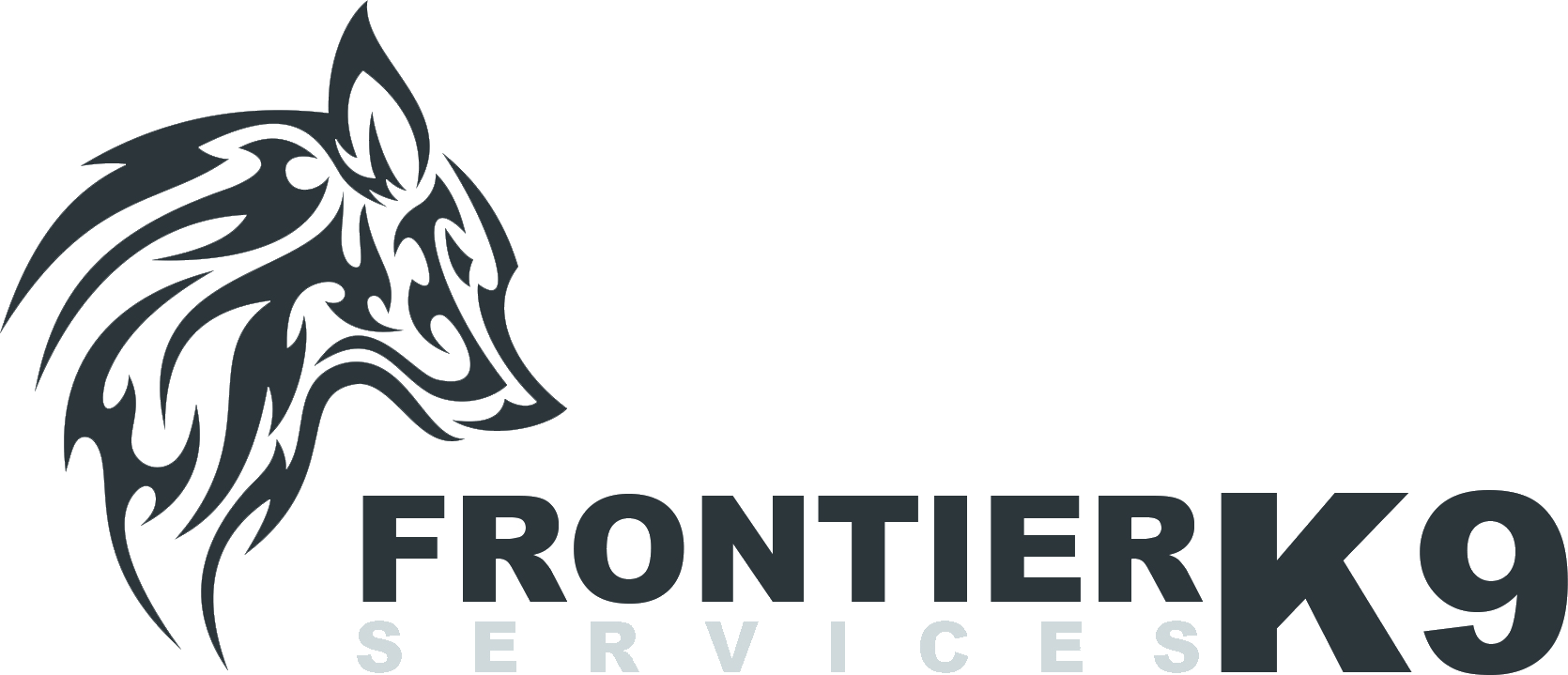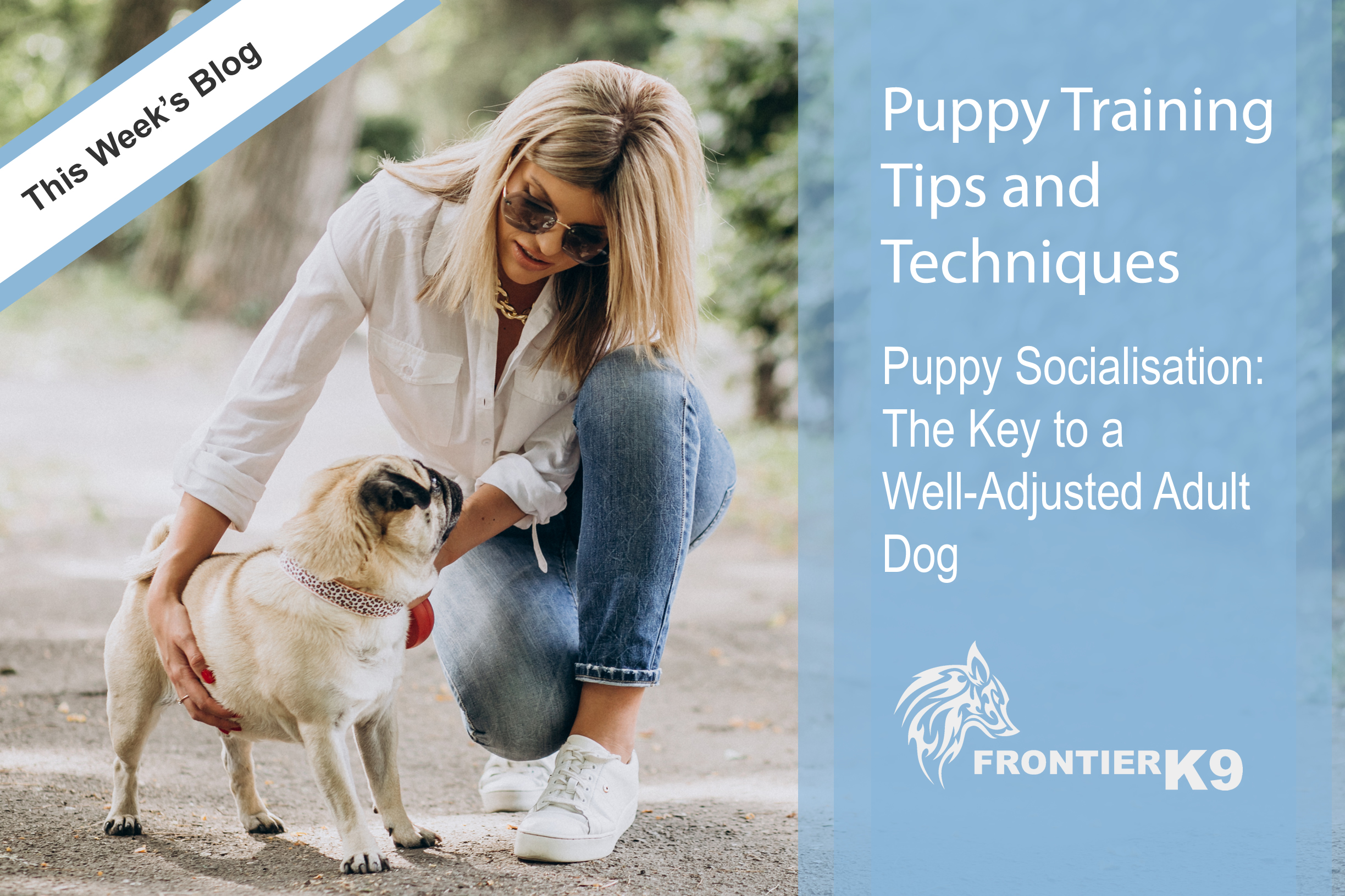It’s blog time at Frontier K9 Services! In our previous blog, we briefly discussed what to expect during your puppy’s first week at home. We touched on the crucial topic of socialisation, and this week, we’re diving deeper into this essential aspect of puppy training.
The first few months of a puppy’s life are crucial for their development. During this time, socialisation plays a vital role in shaping a well-adjusted, confident, and happy adult dog. Proper socialisation involves exposing your puppy to a variety of people, places, sounds, and experiences in a positive and controlled manner. Here’s how to ensure your puppy gets the best start in life.
Why Socialisation Matters
Behavioral Benefits
Socialised puppies are less likely to develop behavior problems such as aggression, fearfulness, and anxiety. They learn to cope with new situations and changes in their environment, making them more adaptable and resilient.
Building Confidence
Exposure to different stimuli helps build your puppy’s confidence. A confident dog is less likely to react negatively to new experiences and is more likely to enjoy a wider range of activities and environments.
Strengthening Bonds
Socialisation also strengthens the bond between you and your puppy. As they learn to trust and rely on you in new situations, your relationship will deepen and grow.
The Critical Socialisation Period
Timing is Everything
The critical period for socialisation is between 3 and 14 weeks of age. During this time, puppies are most receptive to new experiences and are less likely to be fearful. This doesn’t mean socialisation should stop after 14 weeks, but early experiences have the most significant impact.
Gentle and Positive Exposure
Ensure all new experiences are positive. Use treats, praise, and affection to create positive associations. Avoid overwhelming your puppy; gradual exposure is key.
Key Areas of Socialisation
People
Expose your puppy to a variety of people of different ages, sizes, and appearances. This includes men, women, children, and individuals wearing different types of clothing and accessories like hats and sunglasses.
Other Animals
Controlled interactions with other dogs and animals are crucial. Puppy classes, playdates with vaccinated dogs, and visits to pet-friendly places can help your puppy learn appropriate social behaviors.
Environments
Take your puppy to different places such as parks, streets, stores, and friend’s homes. Each new environment helps your puppy learn to handle different settings and stimuli.
Sounds
Introduce your puppy to various sounds like traffic, household appliances, and thunderstorms. Playing recordings of these sounds at a low volume can help desensitise them.
Handling
Regularly handle your puppy’s paws, ears, mouth, and tail. This makes grooming, veterinary visits, and general handling less stressful for them.
Practical Tips for Socialising Your Puppy
Start Small
Begin with less challenging experiences and gradually introduce more complex ones. For example, start with a quiet park before progressing to a bustling city street.
Watch for Signs of Stress
Monitor your puppy’s body language. Signs of stress include cowering, tucked tail, excessive panting, and trying to hide. If your puppy appears stressed, remove them from the situation and try again later at a lower intensity.
Use Positive Reinforcement
Always reward your puppy with treats, praise, and affection when they respond well to new experiences. This reinforces positive behavior and helps create a positive association.
Enroll in a Puppy Class
Puppy classes provide structured socialisation opportunities under the guidance of a professional trainer. They also offer a chance to meet other puppy owners and share experiences.
Common Mistakes to Avoid
Rushing the Process
Socialisation is not a race. Pushing your puppy too quickly can lead to fear and anxiety. Allow your puppy to explore at their own pace and gradually build their confidence.
Negative Experiences
Avoid negative experiences during the socialisation period. A single traumatic event can have long-lasting effects. Always aim for positive, controlled exposure.
Ignoring Health Precautions
Ensure your puppy is up-to-date on vaccinations before exposing them to new environments and animals. Consult your vet for guidance on safe socialisation practices.
The Long-Term Benefits
Proper socialisation sets the stage for a well-adjusted, happy, and confident adult dog. Dogs that are well-socialised are easier to train, more comfortable in various environments, and generally have a better quality of life. They are more likely to be welcomed in public places and can participate in a wider range of activities.
Investing time and effort into your puppy’s socialisation will pay off throughout their life. By providing positive and varied experiences, you are helping your puppy grow into a dog that can confidently navigate the world and enjoy a fulfilling life.
Happy socialising!


